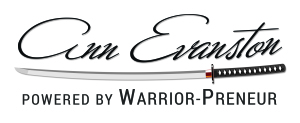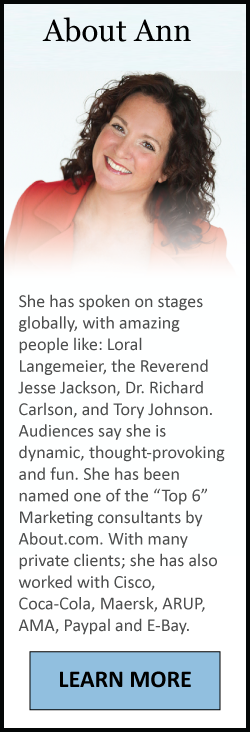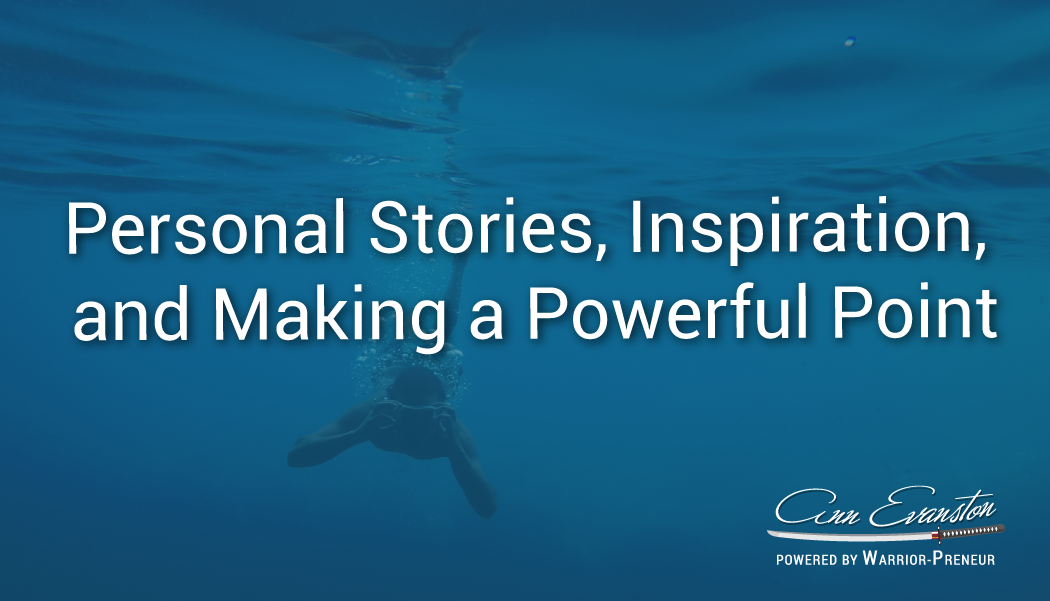
by Ann Evanston | Oct 25, 2017 | Business Strategy, Personal Power, Speaking Strategy
Recently I had the opportunity to teach my Influential Voice course to a group of higher level corporate leaders. It was a great cross-section of different types of industries and backgrounds. I love when people with years of experience still want to learn!
In this program one of the things we cover is the power of using stories to inspire groups of people. I have a simple storytelling method I teach, and they get several times to practice and get feedback in front of everyone.
One participant is a securities software professional. His work is very technical! And here I am asking him to tell stories that increase vulnerability and connect people emotionally. That’s how we create buy-in and yes in others. He wholeheartedly embraced the challenge!
As we started practicing our stories, he revealed that his degree was actually in marine biology. And throughout the class he told these amazing stories and adventures in college and just out …. all related to marine life. He fully engaged the listeners sensory experience!
Better yet? He was 100% able to take those personal stories and relate them back to a point he would want to make to a team at work.
[Tweet “Your Personal stories allow others to know, like, and trust you!”]
Ultimately, that’s a key to a great story. You allow us to learn about you, which means we know like and trust you more, and you create a teachable moment or powerful point so we know why it matters.
Often people tell me they have no stories to share. Every day something happens where you can create a relatable story. Just look at how this man was able to take marine biology and related to a security software team!
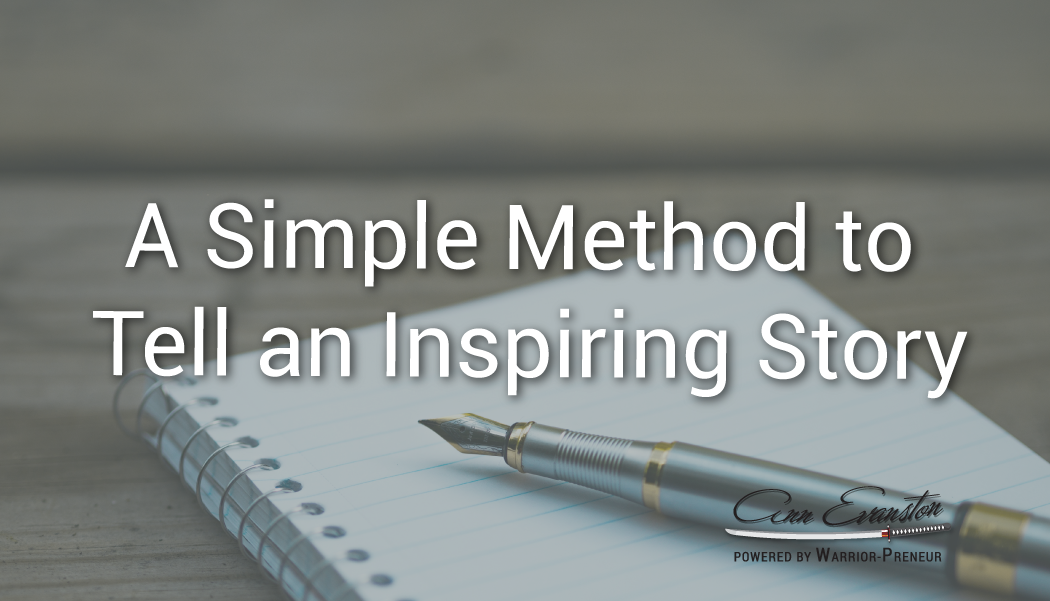
by Ann Evanston | Aug 4, 2017 | Influence Factor, Speaking Strategy
I love telling stories and teaching others how to be great storytellers. It is an outstanding way to become more influential. Stories make us think and feel. Stories place us into soul and out of our ego.
Storytellers are relate-able and like-able. Storytellers inspire and influence. Storytellers our leaders. And storytellers know how to move people, create change, and make a lasting impact.
There is a simple 4 part method I teach for writing the kind of story that does that for those for listening, or read it…the audience. Because ultimately telling a story is about them….not you. This will support you in crafting that.
Here it is:
1-What do you want them to know. This is basically the situation. What is important is the right amount of detail to create a sensory experience. Too often new storytellers give WAY TO MUCH DETAIL. Detail that doesn’t create a sensory experience. Sensory experiences allow the audience to see their lives, or someone they know in the story.
You want your details to connect to our senses: what is the scene? Can we smell or taste anything? Is there something about the space that creates energy, positive or negative? Are there others involved? Are you doing something we need to understand high level context?
2-What do you want them to feel? Inspirational stories connect us emotionally…positive and negative. Without knowing how you want the audience to feel, you will continue to give more detail of your experience versus creating emotional vulnerability.
3-What do you want them to believe? Belief is about connecting the audience to the deeper meaning of telling your story. Are your values in question? Is there a struggle we can consider? What is your internal dialogue? Are there choices you are debating?
4-What is the point? Ultimately, for a story to inspire and motivate, to heal and transform, there must be a relate-able “wrap up.” What was your lesson? What do you want them to know? What can others do if they understand and empathize? How can they grow as a result of your story.
[Tweet “Influential people learn the craft of telling powerful stories!”]
When you get ready to prepare a story, think about these four things. Possibly even journal on them. These method could go in order, more often they are woven throughout the story. Start practicing this as you speak and write stories and you will see how others are moved and inspired!
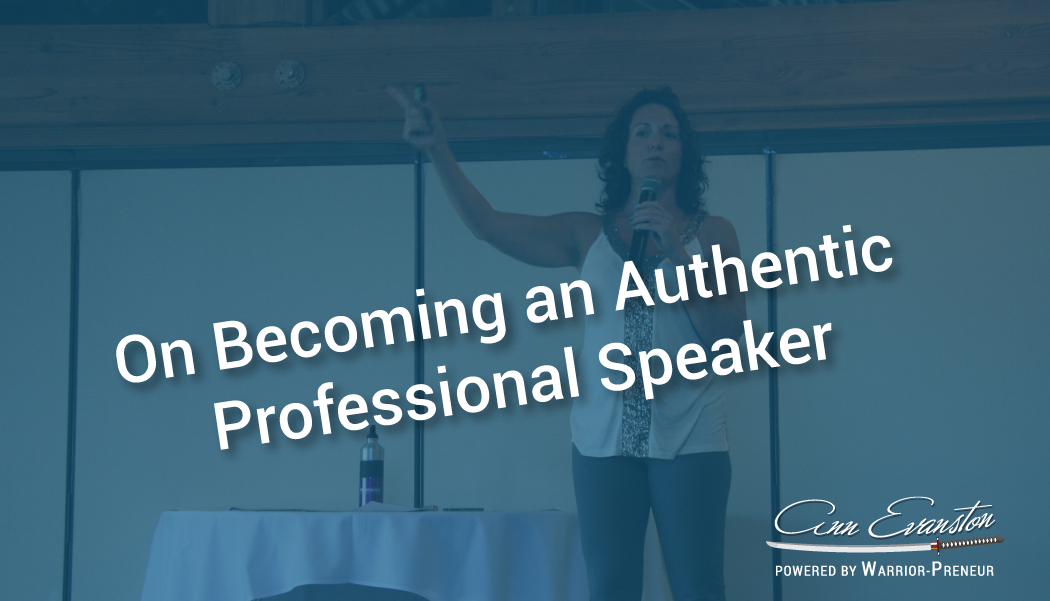
by Ann Evanston | Jun 2, 2017 | Influence Factor, Speaking Strategy, Uncategorized
I think as speakers, our being open to the diversity of style is so important. I started speaking in the 1990s when the majority of speakers were white males, over 50 in blue suits. I was actually TOLD : “if you want to be successful you will wear a suit, with hose, and closed toed shoes. And do something with that hair.”
That’s totally unacceptable. The greatest speakers come from a real space. When I converted to my kick ass high heels, jeans and tank tops on stage everything changed for me. When I wasn’t afraid to let a swear word (or three) slip, greater audience connection happened!
I also remember an NSA phase. Every speaker had an acronym that became their motivational speech, and they all had the same business card design and presentation style.
That becomes inauthentic. If it isn’t you, why do it…audiences saw through it, and it got tired fast. Some speakers are now even afraid to call themselves motivational after that!
[Tweet “If it isn’t you, it becomes inauthentic and others see through it.”]
Our world, especially with our young people, has drastically changed. How they speak, and how certain words can take back power, especially swear words are not dirty anymore. Hell yes!
I am thrilled that I am surrounded with a bunch of open, diverse, dynamic event planners and speakers that embrace all differences and styles. Wow, that’s an amazing place to be! Do you embrace diversity when you see speakers, or have judgement on “what’s professional?”
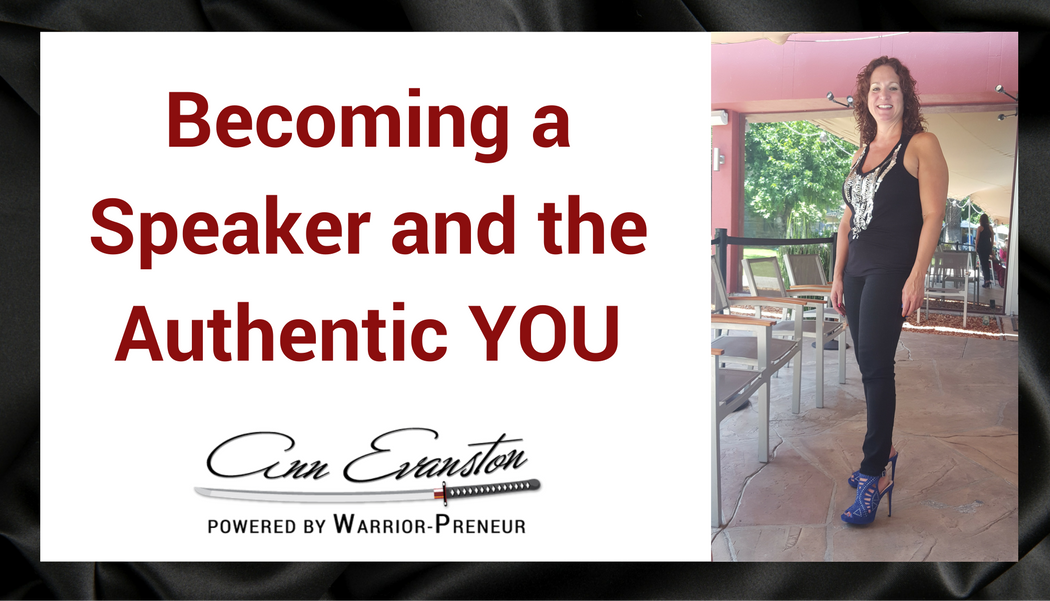
by Ann Evanston | Sep 27, 2016 | Speaking Strategy
 Can you be authentic and speak on stages? Are you finding that there is the “speaker prototype” you need to fit into? I think as speakers, our being open to the diversity of style is so important.
Can you be authentic and speak on stages? Are you finding that there is the “speaker prototype” you need to fit into? I think as speakers, our being open to the diversity of style is so important.
Let me share my story: I started speaking in the 1990s when the majority of speakers were white males, over 50, in blue suits with red or blue ties. I was actually TOLD : “if you want to be successful you will wear a suit, with hose, and closed toes shoes. And do something with that hair.”
That’s totally unacceptable. It so impacted my self-worth that I changed who I was. I have always wanted to speak. I started in Toastmasters in the seventh grade! This was my calling. And for “professionals” to tell me I couldn’t do it any other way, I changed.
For years I would put on stupid outfits that didn’t fit who I was. I would try to put my hair up to control my natural curls. Don’t get me wrong, I got work, I spoke on many stages looking just generic as ever. Then I had that moment “wake up call” where I realized it needed to change. I was a speaker at a three day conference. I had actually done many videos over the three days. And videos of me before I made the changes versus after our dramatically different!
My energy shifted with speaking and being authentic.
Have you struggled with becoming a speaker and staying authentically you? Have you questioned your style or approach maybe because you aren’t getting the opportunities you desire?
The greatest speakers come from a real space. When I converted to my kick ass high heels, jeans and tank tops on stage everything changed for me. When I stopped being afraid of saying shit on stage…everything changed for me. YES! I swear on stage!
I also remember a particular NSA phase where every speaker seemed to have had an acronym and the same business cards, and presentation style.
That becomes inauthentic. If it isn’t you, why do it…audiences saw through it, and it got tired fast.
Our world, especially with our youth today has drastically changed. How they speak, and how words, especially swear words, are used are not dirty anymore.
I am thrilled that I am surrounded with a bunch of open, diverse, dynamic kick ass event planners and speakers that embrace all differences and styles. Wow that’s an amazing place to be! Becoming a speaker and the authentic you. Yes, yes you can. Just step into your confidence and own it!
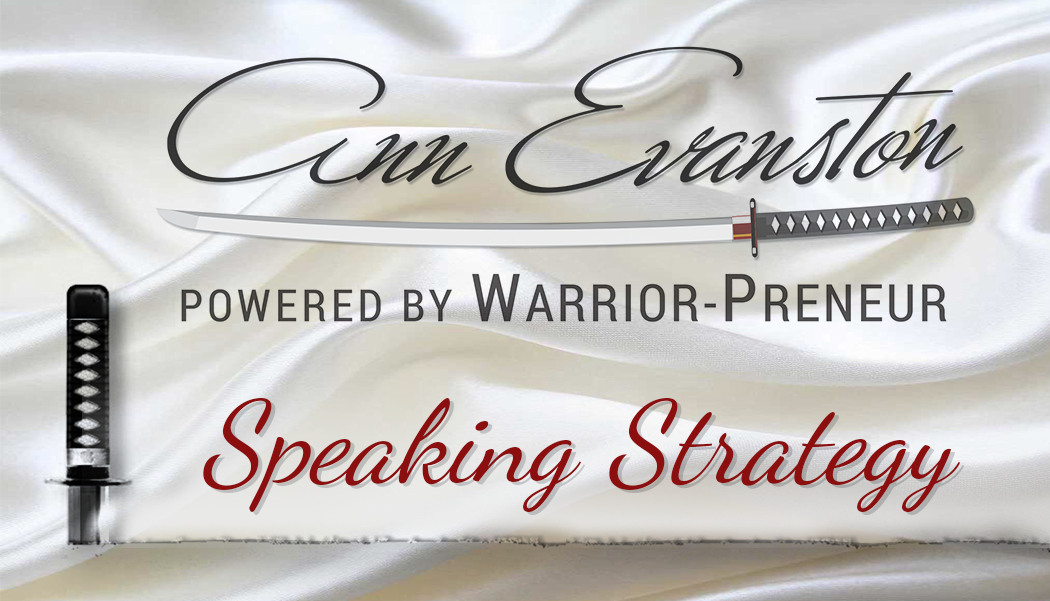
by Ann Evanston | Aug 6, 2015 | Speaking Strategy
Your speaker introduction, that thing that is read by somebody else prior to you giving your talk, (webinar, radio, telesummit, or on stage) is a critical step towards invigorating buyers (Step 5 in my Bad-Assery Business™ MasterMind program).
Too often, when we get ready to get “onstage”, “someone” reads a list of credentials that we think will help us have credibility and influence with the audience.
And honestly, the audience could care less! If you are doing that, you are a big ol’ yawn, before you ever get on stage! Shouldn’t your goal be getting them liking you with that valuable time? YES!! And if your talk is short, you just lost valuable minutes that you could’ve used to get them ready to buy!
I teach my MasterMind clients to think about that introduction strategically as valuable “presentation time” that sets up the audience to know, like and trust you, as well as subliminally hear an offer with ever selling them!
Here are 4 simple steps to include in your speaker introduction?
- Humor is wildly powerful in a speaker intro. How can you add humor? Something funny about yourself is the best way. When you write it, you need to do that in a way that allows the person who’s going to read it to know that it’s meant to be funny.
- You only want 10 to 20 words maximum about why you’re an expert. A simple one-liner to reinforce why you are qualified to talk to them is all the credentials you need at this point.
- Most importantly, your speaker intro needs to emotionally connect the buyer to you. So turn it into a story. What happened to you personally that you’ve learned about what you now are expert at? How can you be relate-able to them in a way that shows them you understand what they are going through?
- And lastly, you want to make sure that your program, your offer, is clearly named at the very end…just before you come “on stage”. You want them to say something like: “Today, Ann will be sharing with us Step Five in her program on Becoming a Compelling Speaker before you ever Get on stage!”
This is the key to a good speaker introduction. Make sure those components are present and you will be launching them towards being buyers!
One last tidbit. Prepare the person who is going to READ it!
- Ask them to read it in advance, this makes you both look fabulous!
- Share clearly what you want: humor, energy, but these words, not something else.
- Ensure they have a copy that’s big enough for them to read easily! 10 to 12 point is typically too small for most people!
This 30-60 seconds sets up sales success, without being salesy and allowing you to connect before you EVER speak—-now that’s compelling strategy!

by Ann Evanston | Dec 31, 2014 | Influence Factor, Speaking Strategy
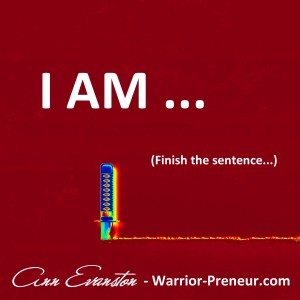 Who am I. WHO am I. Who AM I.
Who am I. WHO am I. Who AM I.
No REALLY who are you? Who is the person that chooses to show up in the world? Are you the same person in public as in private? Do you even know how you want to be seen and heard? Remembered? Thought about?
Do you think about the energy it takes to transfer who you are? How about how it creates into what you do? If you say you are loving do they feel it? In your marketing, your words, your pictures and actions? Is it flat or alive, brimming with a rounded energy of love that they feel as you type? Is love “just being nice” or is there more to it, sometimes even tough love when needed?
Who are you?
How do you INTEND to show up in the world? Energetically how do you intend to show up? And do you know what that really FEELS like?
Brands have energy too – how does who you are show up in your brand? Is it authentic? Authentic means that if you say you are sassy – sassy is on the brand. Playful? Smart?
My favorite work is helping my MasterMind clients define what they look like energetically to the world- how they show up, and is it REALLY what they intend. It’s easy to say “I am compassionate” – it is harder to be sure that shows up in all your copy, your messaging, your writing, your marketing. When you understand this you move into having a compelling voice!
If you are starting this journey I would encourage you to take my Vision of Your Most Influential Self online course to get started. It will help you CHOOSE those words and deeply commit to them. I have set aside a few coupons to get the course for $37 almost 50% off! They are limited!
So this question is much, much deeper for the Warrior-Preneur on a journey to their success.

